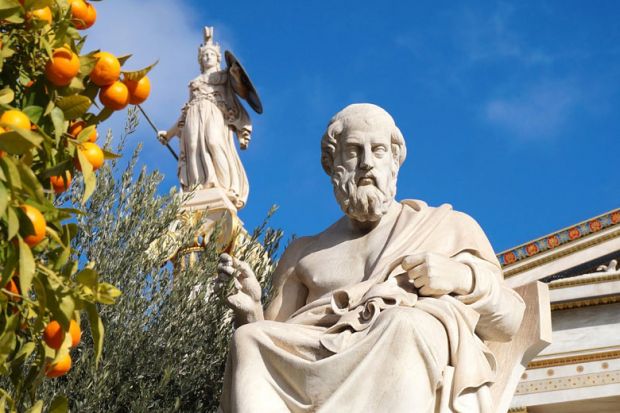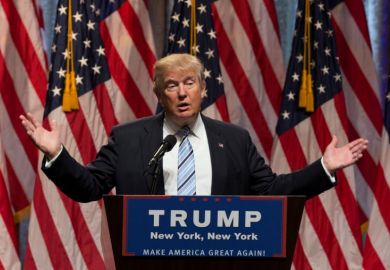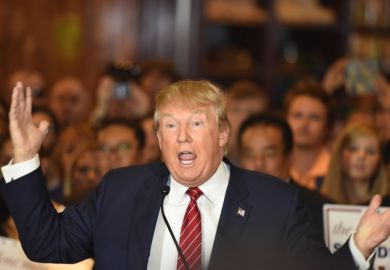Donald Trump has been elected US president, and newspapers, Twitter and Facebook are blooming with suggestions about which voters are responsible for this unexpected victory.
It has been pointed out how the votes of uneducated white people, white women, Bernie Sanders and his supporters, liberals and even Hispanic voters, among others, played a crucial role in these elections.
Although some blame might not be misplaced, the fact remains that a republic changes only when the views of the people change. Finger-pointing is likely only to make Trump voters dig in their heels. As much as promoting a divided community paved the way for Trump’s success, fostering divisions risks providing a breeding ground for strengthening “Trumpism” still further. So how can we avoid this kind of outcome in the future?
Perhaps education is part of the answer. Plato, one of the first great theorists of education in the West, offers us a model of how education can work. In his so-called Socratic dialogues, Plato depicts Socrates as a teacher who does not tell people what to think, but rather engages them in a dialogue that presses them to look for truth and think for themselves. The Socratic method is called the “elenchus”, which means “examination”. Philosophy, in its Socratic dispensation, doesn’t presume to transmit indisputably correct views from teacher to student from above, but rather pushes for greater scrutiny of all views, whoever holds them.
The power of Socratic dialogue lies in its form, not in each of its particular results. And the same holds of democracy. If the “correct” organisation of a society were clear to anyone of sufficiently enlightened views, we would need not democracy but technocracy. The belief that reasonable people can disagree is essential to democracy, and our role as teachers in a democratic society is to be rigorous and vigilant in pushing for critical reflection on all views – including our own.
The importance of education to democracy brings with it the danger of misunderstanding its role. The danger of smugness and condescension from the educated elite. “As the most educated members of society”, some might think, “we know what’s best, and those who disagree with us are ignorant or at least less enlightened”.
Implicit in elitist reasoning is a kind of commodification of education: it treats education as a resource that is unevenly distributed, where those more endowed must grudgingly give voice to those less endowed. The presumed solution on this view is a better distribution of resources – we should pass our enlightened views on to those who are unfortunate enough not to have yet had the opportunity to share them.
Education on this picture becomes a one-way street: those in the position of privilege confer their greater wisdom on the less privileged. Philosophical questioning can help us to avoid the elitism trap too.
For sure, philosophy can resolve into a series of intra-academic debates that bear no relevance to the world. Yet it doesn’t have to. The current political circumstances suggest that if philosophy really is a tool for critically engaging with issues and understanding them better, this is a good moment for bringing it out of the ivory tower. Philosophical tools are not simply good tools for a flexible work-mindset. They are tools assessing things, and thinking of solutions.
Plato was clearly optimistic about the value of a philosophical education for society. “If we…educate them in it, even justice itself won’t blame us, and we’ll save the city and the constitution,” he says in Republic.
His slogan today would probably be something that is also spreading on social media: “Make America think again”.
Simona Aimar is a lecturer and assistant professor in the philosophy department at University College London, and David Egan is a collegiate assistant professor at the University of Chicago.
Register to continue
Why register?
- Registration is free and only takes a moment
- Once registered, you can read 3 articles a month
- Sign up for our newsletter
Subscribe
Or subscribe for unlimited access to:
- Unlimited access to news, views, insights & reviews
- Digital editions
- Digital access to THE’s university and college rankings analysis
Already registered or a current subscriber?







